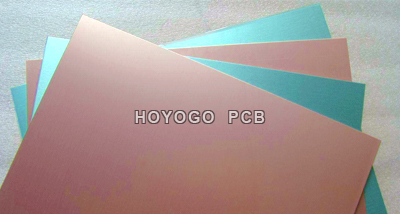In the field of medical devices, the quality and performance of PCBs are of vital importance. Among the various steps in PCB manufacturing, selecting the right substrate material is critical, as it directly affects the reliability, stability, and safety of medical devices. So how do you choose the right substrate material for medical PCB?

1. Special Requirements for Medical PCBs
Medical devices often need to operate stably for a long time in complex environments, which places extremely high demands on PCBs.
1) High Reliability
Medical equipment is related to the life and health of patients, and any failure may have serious consequences. Therefore, medical PCBs must have extremely high reliability and be able to work stably under various harsh conditions. For example, during surgery, medical equipment cannot suddenly crash or malfunction, otherwise it may endanger the patient's life.
2) High Precision
Many medical devices need to accurately detect and analyze human physiological signals, which requires PCBs to have high-precision signal transmission performance. For example, devices such as electrocardiographs and blood glucose meters need to accurately collect and transmit weak electrical signals, which places very high demands on the precision of PCBs.
3) Security
Some medical devices come into direct contact with the human body, making compliance with stringent safety standards essential. For example, PCBs must have excellent insulation properties to prevent leakage currents that could harm patients; At the same time, they should also have anti-electromagnetic interference capabilities to ensure the normal operation of the equipment.
2. Characteristics of Different Substrate Materials
At present, the common medical PCB substrate materials are mainly the following:
1) Phenolic Paper Substrate
Advantages: Low cost and easy processing.
Disadvantages: Relatively low performance, poor heat resistance, insulation and mechanical strength, making it unsuitable for high-performance medical devices.
2) Epoxy Glass Cloth Substrate
Advantages: Good insulation performance, heat resistance and mechanical strength, with moderate price.
Disadvantages: Signal transmission performance slightly inferior at high frequencies.
3) Polyimide Substrate
Advantages: It has excellent heat resistance, insulation and mechanical strength, while maintaining good signal transmission performance at high frequencies.
Disadvantages: High cost and difficult processing.
4) Ceramic Substrate
Advantages: They offer excellent heat resistance, insulation and mechanical strength, while also providing good heat dissipation performance, making them suitable for high-power medical devices.
Disadvantages: High cost and difficult processing.
3. How to Choose the Right Substrate Material
When choosing the substrate material for medical PCB, the following factors need to be considered comprehensively:
1) Equipment Performance Requirements
Select the appropriate substrate material based on the specific performance requirements of the medical device. For example, if the device requires high-precision signal transmission performance, polyimide or a ceramic substrates can be selected; If the equipment has higher cost requirements, you can choose epoxy glass cloth substrates.
2) Working Environment
Consider the working environment of the medical device and select a substrate material that can adapt to the environmental requirements. For example, if the device needs to work in a high-temperature environment, a polyimide substrate or a ceramic substrate with good heat resistance can be selected; If the device needs to work in a humid environment, you can choose a substrate material with good moisture resistance.
3) Cost Budget
Select a substrate material within your budget. Different materials vary significantly in cost, requiring a balance between performance and affordability.
The choice of substrate material for medical PCB is a crucial decision that directly affects the performance, reliability and safety of medical devices. To make the right choice, carefully consider the equipment’s performance requirements, operating environment, and cost constraints to select the most suitable substrate material. Only by choosing the right substrate material can the quality and performance of medical PCBs be ensured, providing a solid guarantee for the stable operation of medical equipment.
HoYoGo is an international, professional and reliable medical PCB manufacturer. With our rich industry experience, advanced technical equipment and a professional team, we can provide medical device manufacturers with high-quality PCB products and comprehensive technical support to promote the innovation and development of the medical industry. If you have any related needs, you are welcome to send us inquiries.